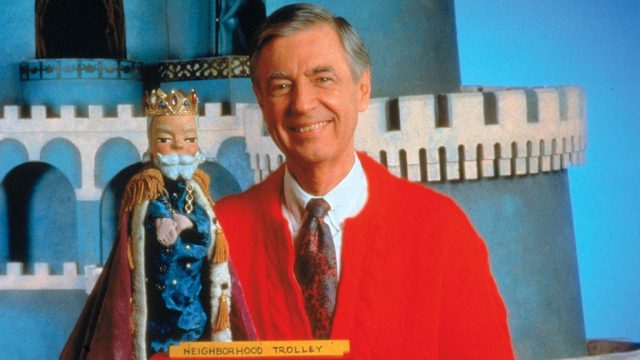To be perfectly honest, I wasn’t a huge fan of the show much of my childhood, and even as an adult, it’s not a well I go back to often. It was far too mellow for my tastes; I much preferred the gentle anarchy of Muppet projects. I do remember watching the show as a child, though—in fact, I remember a clip where he went to a graham cracker factory as my best friend at the time and I were eating graham crackers, which’ll blow your mind when you’re seven. My own son, actually, would much rather watch the cartoon of Daniel Tiger’s Neighborhood, and he had to have it explained to him who Mr. Rogers even was, when we were watching the Oscars this year.
On the other hand, I’m glad he’s there for kids whose style he is. He cared about children in a way that few creators of children’s television really seem to. Even Jim Henson, Gods love him, was more about the puppets and about playing around with things like that than about actually interacting with children, fun as he found that sometimes. Mr. Rogers—you basically just have to call him that—didn’t even like to sit behind a desk, because he didn’t like having things between him and kids.
Besides, the shape of both children’s television and public television has a lot to do with him. He’s the one who convinced Congress that public television needed to be a thing, for example. It turns out not even Congressmen were prepared to say no to Mr. Rogers. And he and Jim—who is Jim to me only in part because of my family connection to the Muppets—were both very into the idea of television specifically for children that wasn’t about advertising but instead was about educating.
Mostly what I remember Mr. Rogers teaching, though, was what you might call emotional intelligence. He taught people skills and how to get on with life and how to interact with other people. I don’t think he was teaching the alphabet or counting, really, but all those jingles I hate from Daniel Tiger’s Neighborhood about things like taking a minute to calm down when you’re mad or what have you all descend naturally not just from the Land of Make Believe but from the sort of calm lessons he taught kids about how to get through the day.
And, no, he wasn’t a sniper in Vietnam. Didn’t serve in the military at all, in fact. He was an ordained minister, but he never said “God” on the show, presumably because he figured that was something a kid should learn from their parents. And it’s funny to me to think of all those kids who lived on his block who used to yell at their televisions that, yes, they really were his neighbors. You know he knew all those kids’ names, too.

